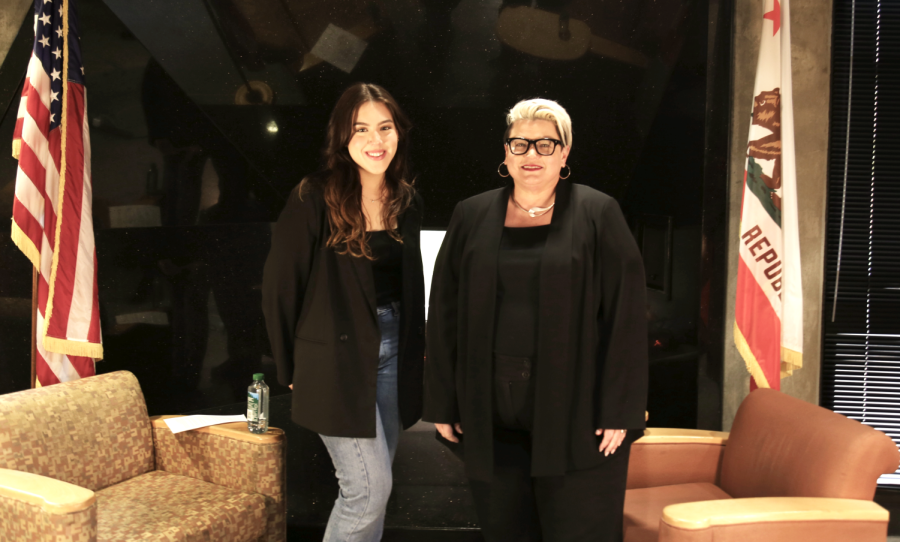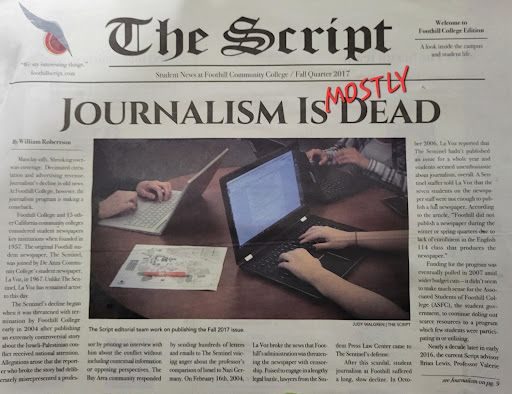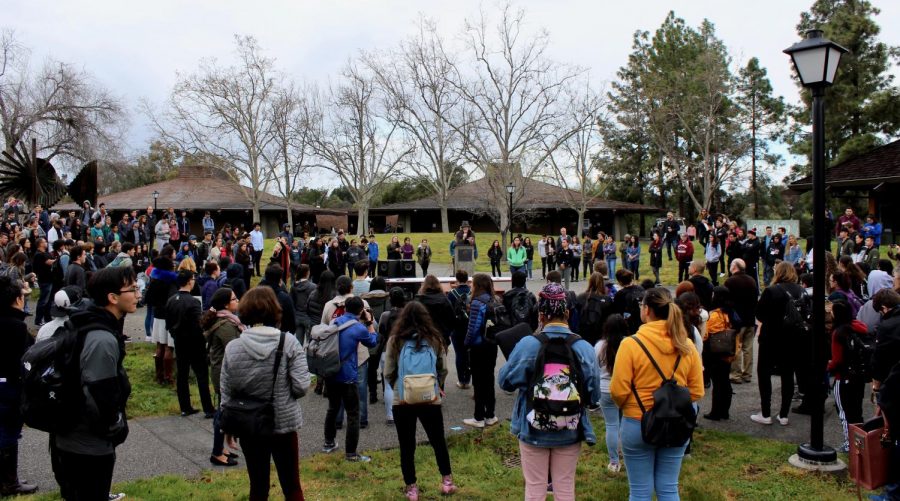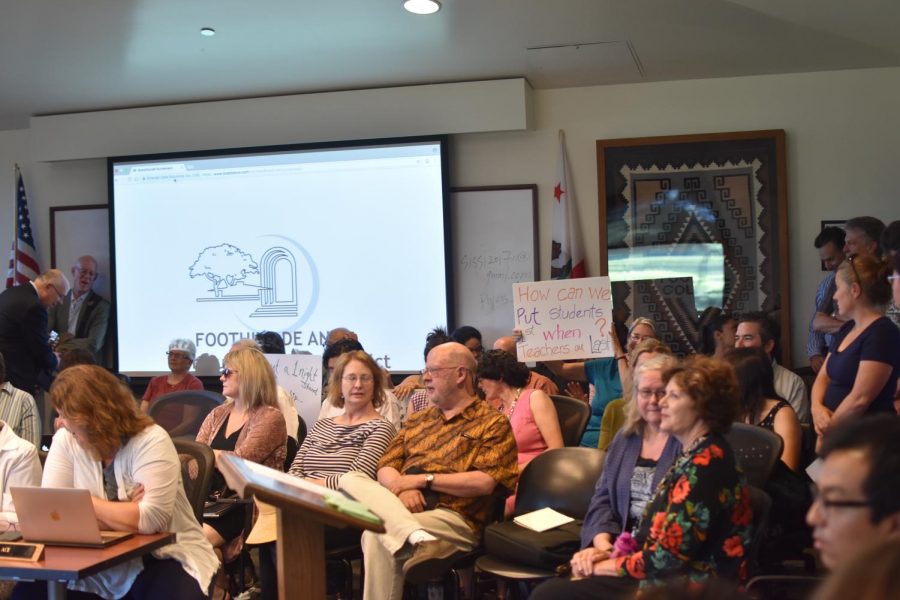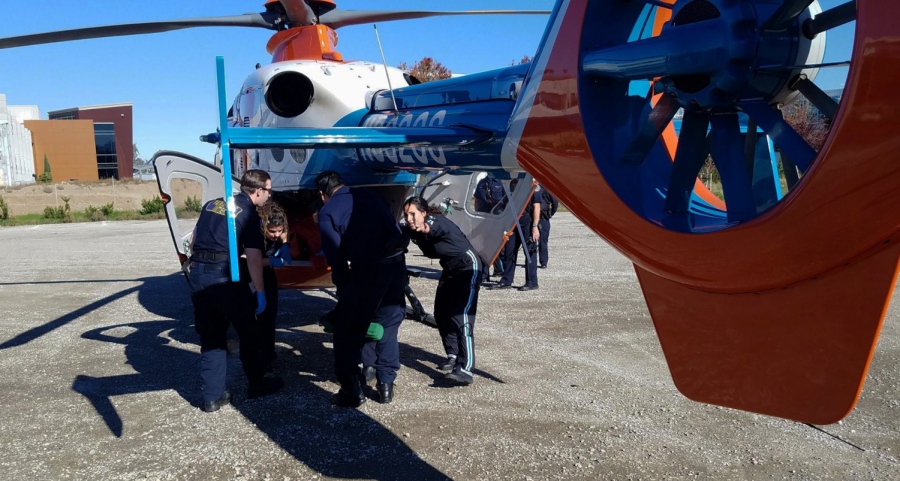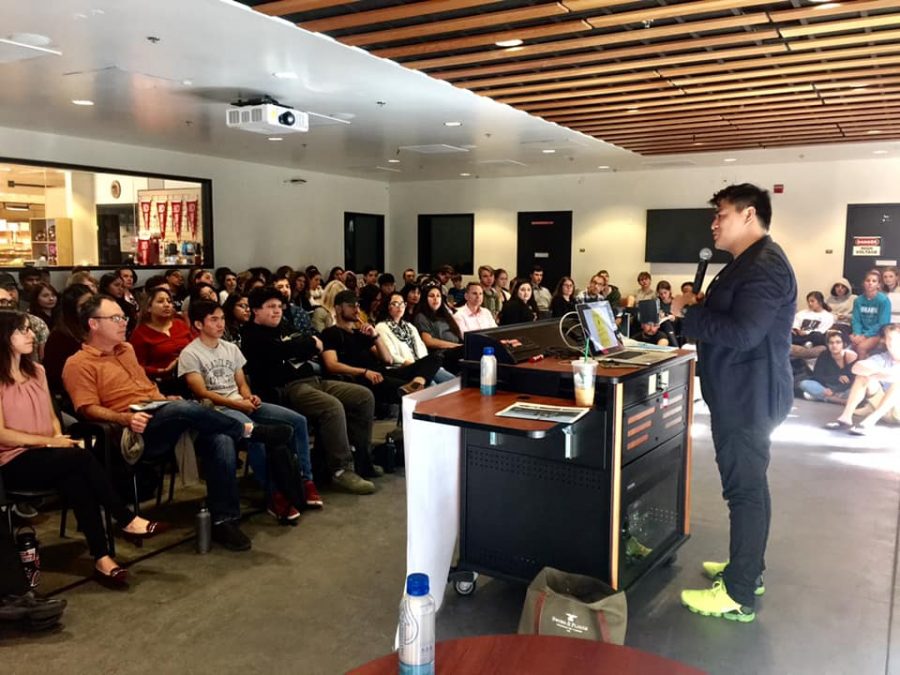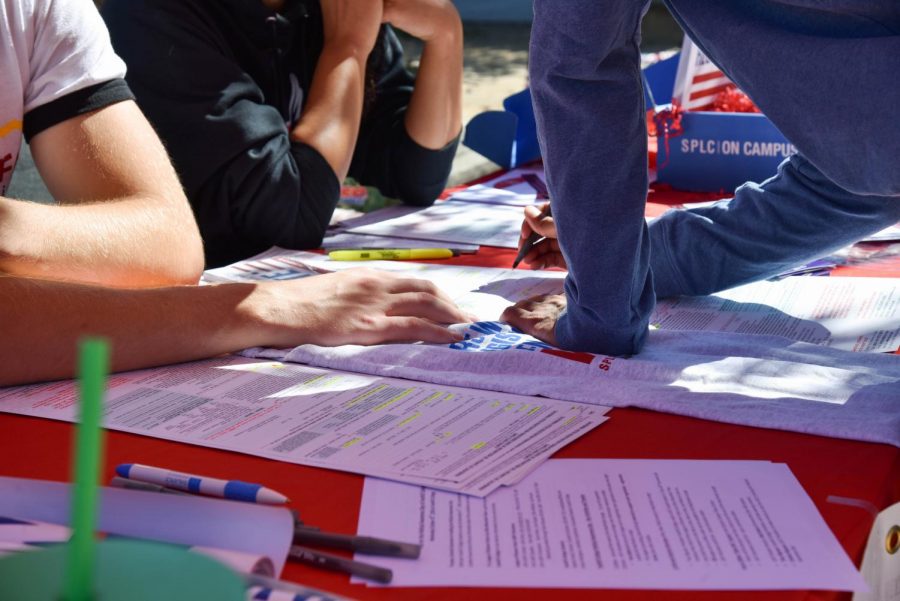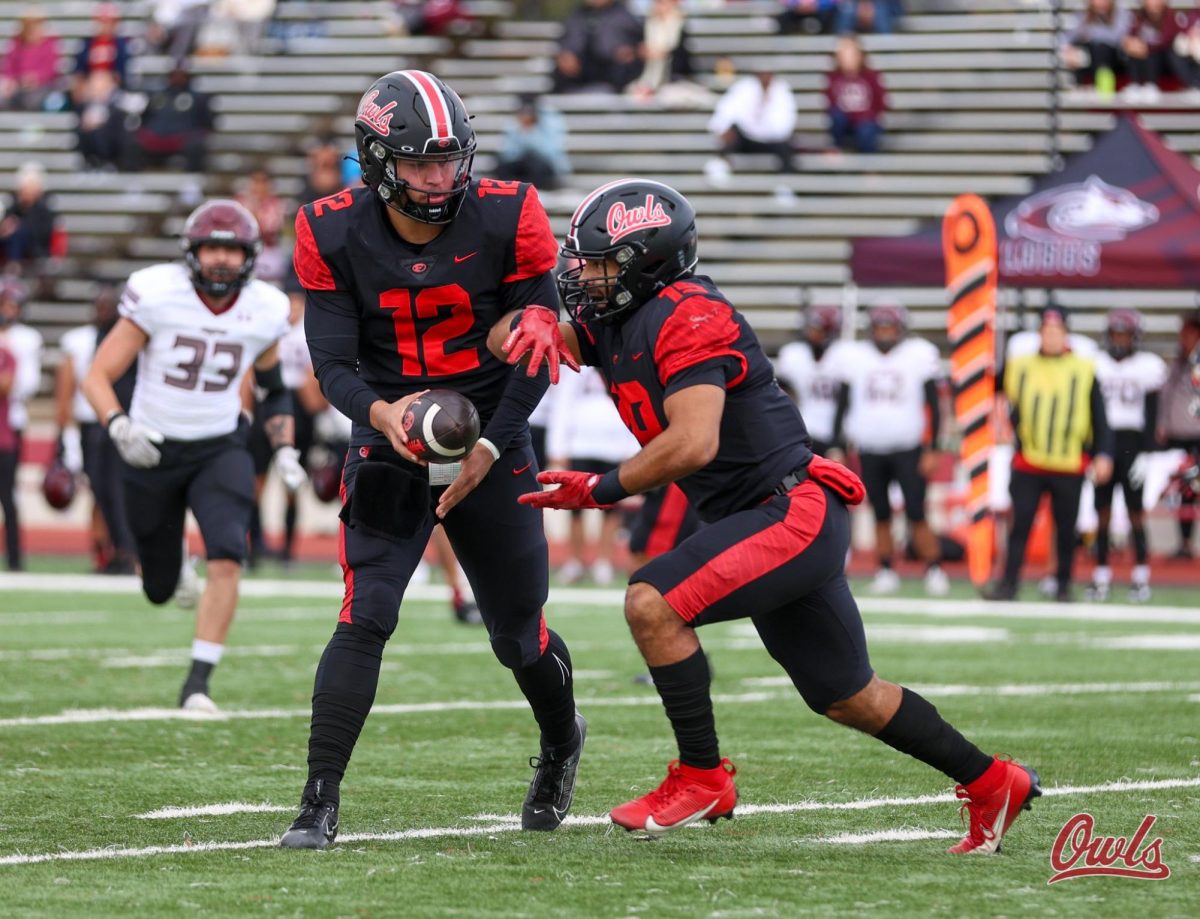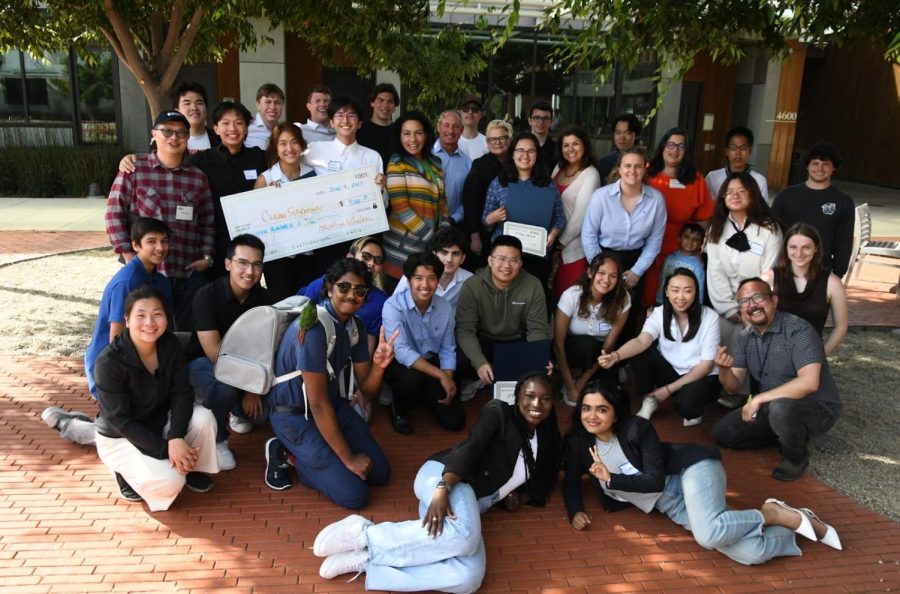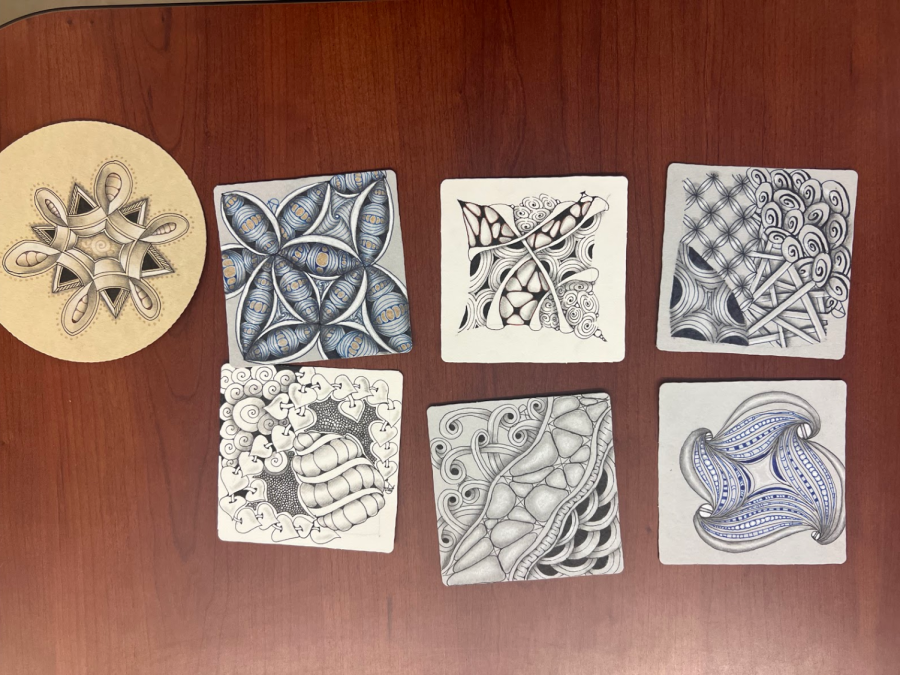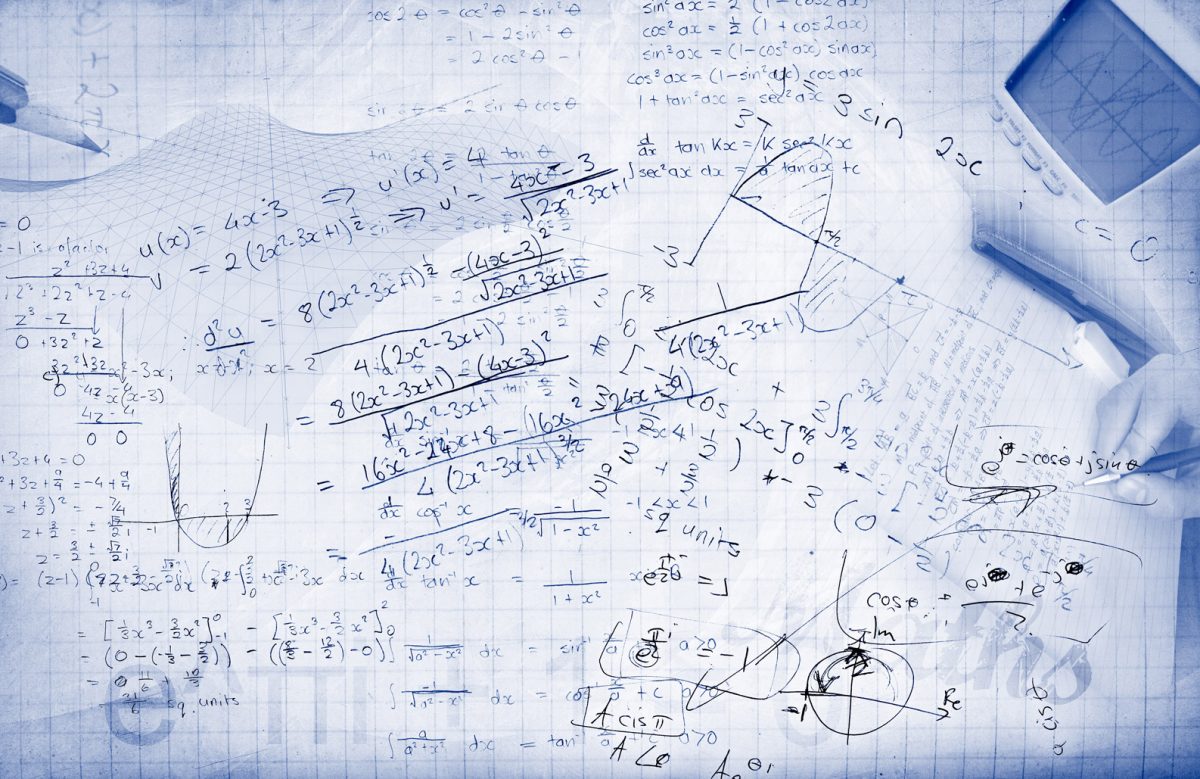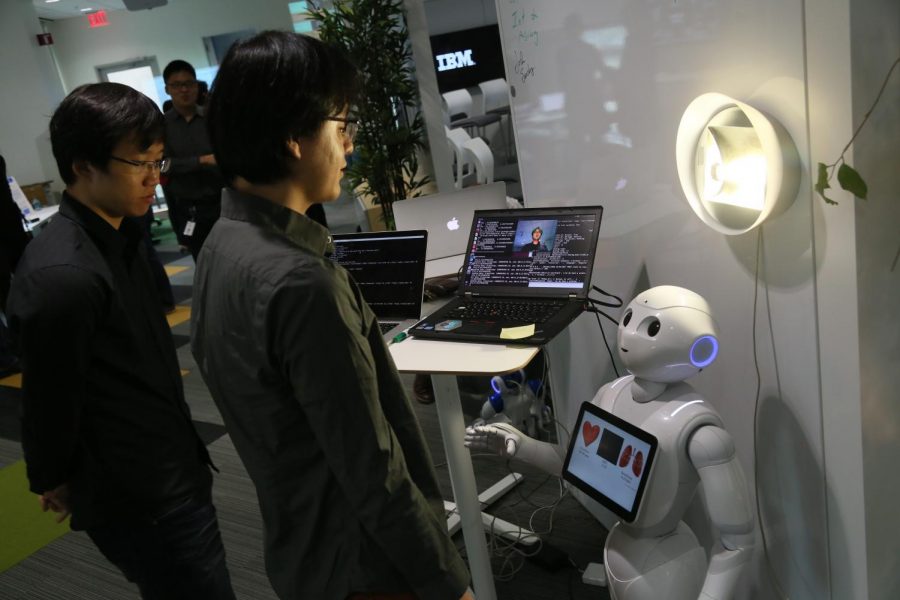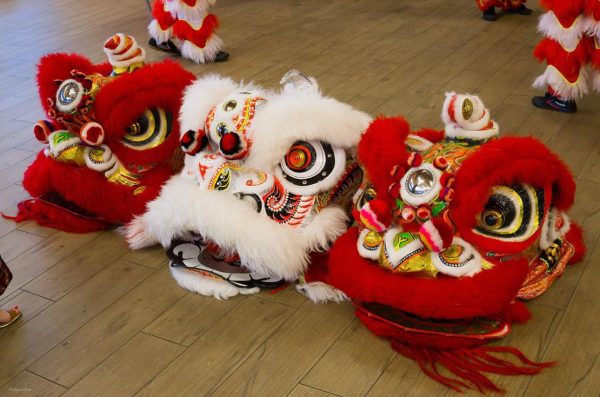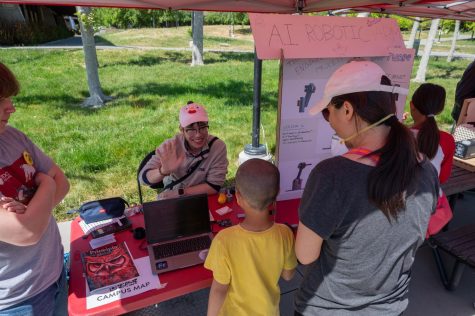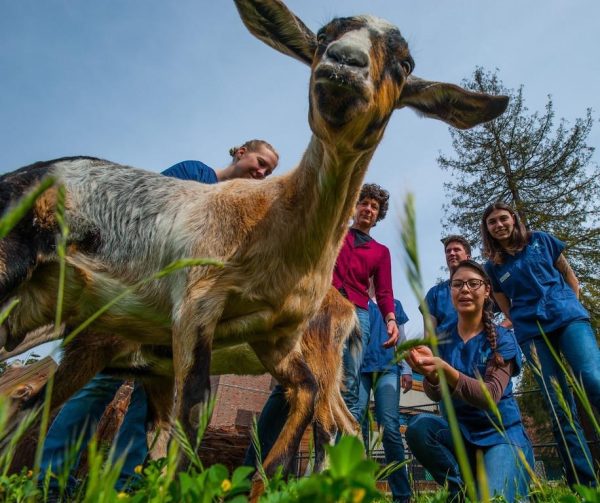STEM Center presents Machine Learning workshop
Jack Plunkett - IBM Research Flickr
George Chen, a Rice University PhD student, has his heart and respiratory rates measured by a prototype IBM Multi-Purpose Eldercare Robot Assistant (IBM MERA), as IBM Research Staff Member Jinho Lee, left, observes during a demonstration at the IBM “Aging in Place” research environment in Austin, Texas. IBM and Rice University have collaborated to create a Watson-enabled robot designed to aid the elderly and caregivers.
“Python and R are the number one and number two languages being used for machine learning. We try to simplify what we find on the web and apply it to our work here at Foothill College. Which ones do we use for what? That’s what we’re going to focus on our projects here.”
On Wednesday, February 21st, STEM center tutor Konstantinos Kalaitzidis presented “Statistics for Machine Learning”, the fifth installment of the STEM Center’s Artificial Intelligence workshop series.
Artificial intelligence is the ability of machines to mimic human intelligence. Recent advancements of computing power have allowed artificial intelligence to take off not just in Silicon Valley, but worldwide.
According to global consulting firm Accenture, “AI could double annual economic growth rates in 2035…The impact of AI technologies on business is projected to increase labor productivity by up to 40 percent…”
Machine learning is a subset of artificial intelligence in which algorithms autonomously and repeatedly learn from past data to make future predictions, therefore adapting to different scenarios. For example, machine learning can use customer data to predict “which customers will respond to a particular promotion.”
The workshop reviewed three of the many statistical concepts used in machine learning: graphical techniques, used to visualize data; statistical models, a model representing the data; and probability distributions, which represent the probabilities of all possible outcomes. Machine learning systems are all about analyzing data — and analyzing it as accurately as possible — so understanding what the machine infers from each model and graph is crucial in picking the right one to use. Though machine learning may seem intimidating, it is not. Many concepts used are ones students have already encountered in statistics classes, such as chi-squared distributions, linear models, and histograms.
All students interested in learning about artificial intelligence are welcome to attend the next workshop in the series, “Quantum Physics for Machine Learning” on Monday, February 26th from 1:30-2:30pm in Room 4218. For further exploration, Foothill’s Cognitive Science and Artificial Intelligence Club meets Tuesdays from 1:30pm to 2:30pm in the STEM Center.
A list of other Winter 2018 STEM Center workshops can be found here. All workshops are live streamed and posted on the Foothill College STEM Success Center page as well.







